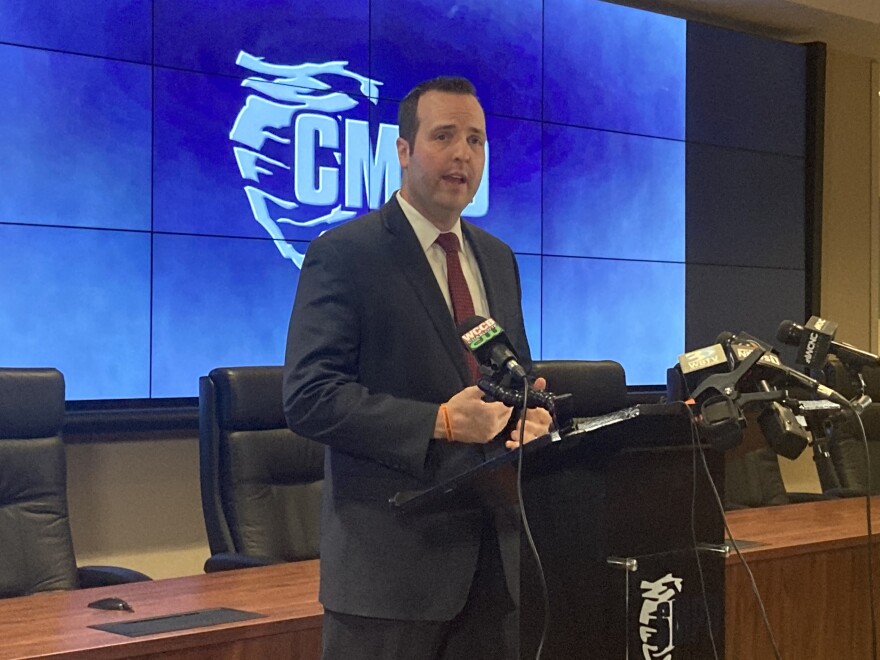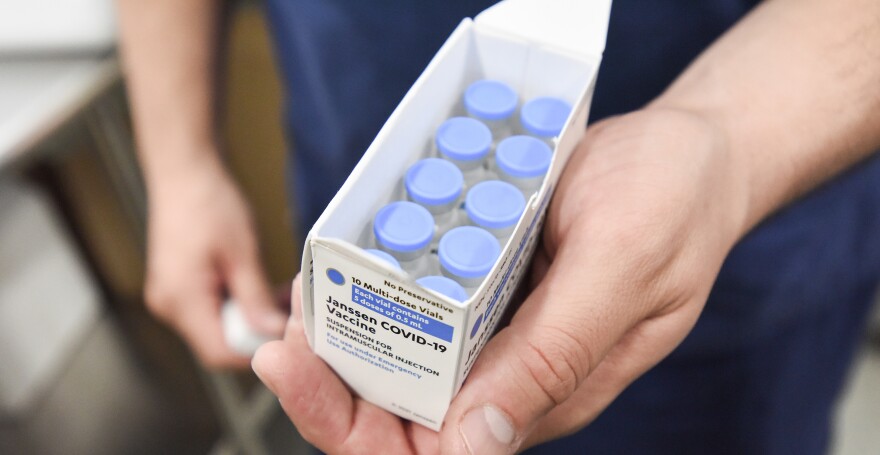Last weekend, we talked about a tale of two crises: As the coronavirus pandemic, which is still a gargantuan challenge, decreases in intensity, the gun violence epidemic one again floods into the spotlight. That was just as true last week when a mass shooting claimed six lives near Rock Hill, South Carolina, as it was this week when eight people were shot and killed at a FedEx warehouse in Indianapolis.
And the gun violence hasn't been limited to mass killings that capture nationwide headlines. It's a problem that reaches nearly every nook and cranny in America, in the Carolinas, in greater Charlotte.
Police reported at least three shooting deaths in Charlotte this week. One case, the death of Remy Fennell on Thursday, was eerily similar to the death of Jaida Peterson on April 4. Both were transgender women, both were Black, and according to police, both engaged in sex work and were shot to death in Charlotte hotels. Police issued an urgent warning about the slayings on Thursday, and the next day they announced two people had been charged with murder in the homicides. Detectives are mum about potential motives but said they're talking to the FBI about potential hate crime charges.

Gun violence was front and center again this week when police revealed details about a local teacher's seemingly double life. The sheriff of Alamance County said a Union County teacher who was killed the week before had actually been gunned down in a shootout at a drug stash house run by people affiliated with a cartel. Sheriff Terry Johnson said Barney Dale Harris, a Spanish teacher at Union Academy Charter School, was part of a team that was trying to rob the stash house. An 18-year-old man, Alonso Beltran Lara, who was described as being involved with drug trafficking, was also shot to death during the incident.
The sheriff's comments left the school, the community and members of several families reeling and searching for answers.
"The Barney Harris that so many here knew and loved was a very different person than the man we heard about in recent news reports," said John Marshall, head of Union Academy Charter School.
The resurgence of news about gun violence comes as America continues to grapple with another longstanding challenge: deaths at the hands of police and a push for reform. Just this week, police in Chicago released video of the fatal shooting 13-year-old Adam Toledo by officers. That came amid outcry over the shooting death of Daunte Wright by ex-officer Kim Potter in Minnesota and the ongoing trial of Derek Chauvin, the former officer charged with murder in the death of George Floyd last year in Minneapolis.
Calls for reform and justice haven't just been limited to law enforcement. Over the past year, there's been a rising cry for an end to systemic racism.
Part of the effort locally has included discussions over whether -- and how -- monuments and naming honors tied to white supremacy should be removed or revised. This week, the Charlotte-Mecklenburg school board voted to rename Barringer Academic Center for Charles H. Parker. The Barringers for whom the elementary school was named were found to be active in white supremacy movements in the 19th and 20th centuries. Parker, on the other hand, was born into enslavement but died free in 1939 after having developed homes, churches and a school in the West Boulevard area.
"He was an anchor of education for the Black children for 50 years," descendant Geri Lewis told the school board.

Now, as we said before, the pandemic is still very much with us. This week, the Carolinas paused use of the single-shot Johnson & Johnson vaccine while federal agencies investigate reports of rare but potentially dangerous blood clots. Still, progress with vaccinations is being made in a big way. More than 33% of adults in North Carolina and 26% of residents in South Carolina have been fully vaccinated.
And the virus is still a major factor in public policy, as evidenced by the CMS board approving nearly $900,000 in air quality upgrades at 39 schools in an effort to reduce the risk of COVID-19 spread. But you only have to turn the clock back to April 2020 to see that in 2021, there's a light at the end of the tunnel. Case in point: Graduating seniors in Mecklenburg County will actually get to walk the stage this year.
"This year, as things are improving, we wanted to offer our students, their families and friends an opportunity to celebrate this amazing accomplishment and life event," Superintendent Earnest Winston said, announcing in-person graduation plans.
Is this a sign that Zoom meetings, face masks and social distancing may be heading for the sunset in the coming months? We'll find out together.

ICYMI: MORE LOCAL NEWS
Charlotte Gives Details On New Arts Funding Without ASC
City Manager Marcus Jones said Charlotte will increase its arts and cultural spending to $4 million annually and is also adding $2 million this year in federal COVID-19 relief funds. Jones said the private sector has agreed to match that $6 million public contribution.
Former N.C. Gov. and Charlotte Mayor Pat McCrory Running For Senate
The Republican ex-governor, mayor and current radio talk show host is formally entering North Carolina's high-profile 2022 U.S. Senate race.
NC Bill Would Make DACA Students Eligible For In-State Tuition
A bill introduced in the North Carolina Senate would give in-state tuition to college students protected under the Deferred Action for Childhood Arrivals program. It would apply to public universities and community colleges.
Charlotte YMCA Lands $18 Million Donation From Billionaire Philanthropist
The YMCA of Greater Charlotte announced that it received an $18 million donation from billionaire philanthropist MacKenzie Scott.
At Least 4,000 Local Venezuelans Eligible For Temporary Protected Status
Civil unrest and a crumbled economy have propelled more than 5 million Venezuelans to leave their country. Now, about 300,000 Venezuelans living in the United States can apply for temporary protected status, and at least 4,000 are in the Charlotte area.
Feds Warn Pipeline Is At Risk; Company Says Leak Is Deeper Than Reported
New mapping shows gasoline contamination from a spill on the Colonial Pipeline north of Charlotte last summer goes deeper into the soil than previously reported.

REBUILDING CHARLOTTE
When it comes to COVID-19 and nursing homes, the news over the past year has been mostly grim. Infection rates and deaths were high, and family members couldn't visit loved ones in person. But nowlife is actually starting to return to normal at nursing homes.
Meanwhile, the economic slowdown that came with the coronavirus pandemic put a squeeze on Charlotte's food pantries. As people lost jobs and income, demand rose and pantries have scrambled to keep the food supply flowing. Now, those pantries are working to recover, too.
COMMENTARY
WFAE commentator Tommy Tomlinson went to get his second shot last week, and in his On My Mind commentary, he reflects on how the pandemic routines we’re used to felt different this time.
BEST OF CHARLOTTE TALKS
It’s been two decades since the man largely credited with envisioning and creating modern-day Charlotte stepped down as CEO of Bank of America. But Hugh McColl's contributions to Charlotte continue through work, philanthropy and a dedication to social justice issues and economic disparities. His new book, "Beyond the Bank," tells the story.
SOUTHBOUND
Tennessee comedian Nate Bargatze has been a favorite on the talk-show circuit and in comedy clubs across the country. He has a new special on Netflix called “The Greatest Average American" — one of the few specials filmed in the COVID-19 era. And he talks to Tommy Tomlinson in the latest SouthBound about his family-friendly humor and more.
STILL HERE
In our latest installment of Still Here, our podcast on resiliency amid the coronavirus pandemic, WFAE's Sarah Delia speaks with a Charlotte restaurant owner about the loss of closing her business after 30 years, and the personal gains in love and family.

Want a roundup of WFAE's top stories delivered to your inbox every Sunday? Sign up here for the Best of WFAE newsletter.


